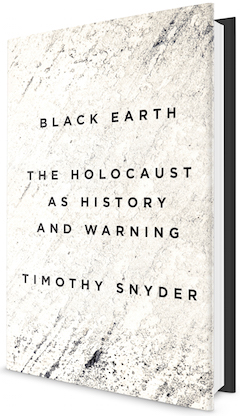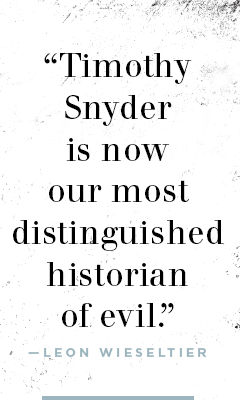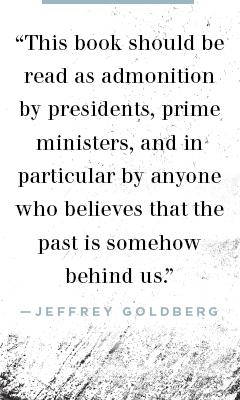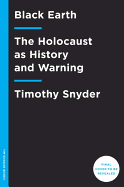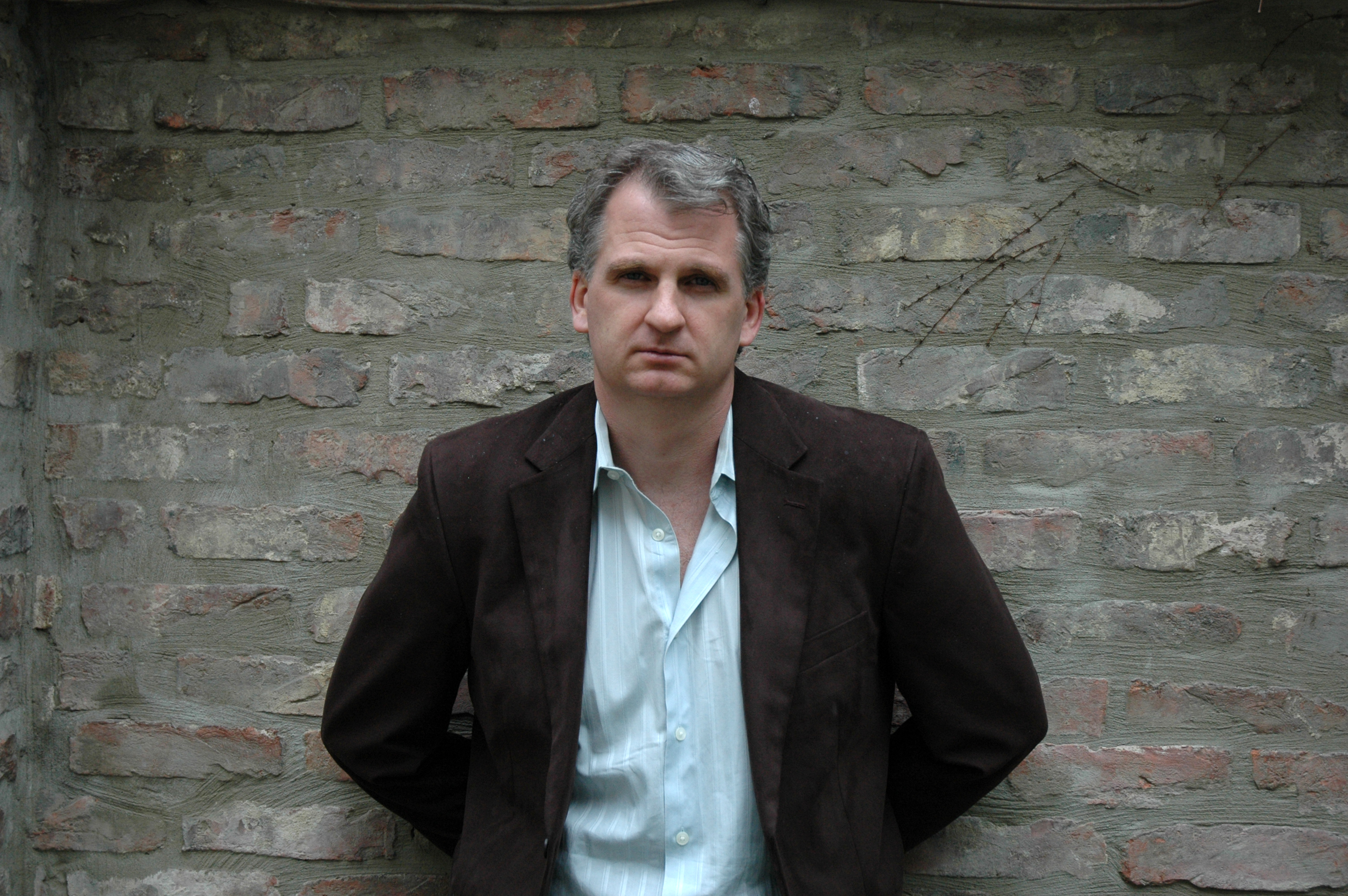Black Earth: The Holocaust as History and Warning
by Timothy Snyder
In 1941, a German soldier wrote to his wife from Soviet Belarus, describing killing Jews in the city of Mahileu on October 2 and 3: "During the first try, my hand trembled a bit as I shot, but one gets used to it. By the tenth try I aimed calmly and shot surely at the many women, children, and infants. I kept in mind that I have two infants at home, whom these hordes would treat just the same, if not ten times worse.... Infants flew in great arcs through the air, and we shot them to pieces in flight, before their bodies fell into the pit and into the water."
What perverse circumstances led to this scene of horror, repeated a thousandfold across Eastern Europe during the Second World War? Can politics or propaganda alone account for a father murdering babies? Could this happen again? Timothy Snyder (Bloodlands: Europe Between Hitler and Stalin) confronts these and other questions in Black Earth: The Holocaust as History and Warning.
Any understanding of the Holocaust must begin with Adolf Hitler's bizarre racial cosmology. According to Hitler, humanity was divided into tiers of races, from the superior Germanic/Aryan master race to the inferior Slavic race, all caught in an eternal struggle for world domination. The natural order was bloody warfare to determine the triumphant race. To Hitler, "Eden was not a garden but a trench," Snyder writes.
But Hitler's ideal order had been subverted. Instead of an all-consuming race war, he believed the world was enthralled by the false moral rules of inhuman beings, a non-race, the Jews. Global Jewry conspired to keep the Aryan race from achieving its true potential, and traitorous Jews within Germany were responsible for the calamity of World War I.
The German state (like any other state in Hitler's worldview, legitimized only as a tool of racial power) was kept weak by a lack of colonial possessions. To become great, Hitler thought Germany needed the raw materials and open space of Eastern Europe. Snyder argues that Hitler was responding to what would have felt like an impending ecological catastrophe: without the "black earth" of fertile Ukraine, Germany would remain a net food importer, at the mercy of neighbors with whom Hitler planned to wage war. Expansion to the east, or Lebensraum, became an obsession. Hitler would use African-style colonialism on his European neighbors.
The "Jewish question" was not unique to Nazi Germany. Other states openly debated how to handle their large Jewish minorities prior to World War II. Poland, center of the largest Jewish population in Europe before the Holocaust, supported Zionist settlement in Palestine. Snyder argues that Hitler thought of Poland as a potential ally against Soviet Russia in the mid-1930s, until differences in the "Jewish question" made his temporary pact with Stalin more politically tenable. Carving up Poland with the Soviets in 1939 created the direct land border Hitler needed for his later invasion of Russia and, Snyder says, set the stage for the Holocaust by obliterating Polish statehood.
At the onset of World War II, Snyder writes, Hitler did not necessarily intend to immediately murder millions of Jews. The Führer envisioned Jewish outposts in distant Siberia, beyond the fertile lands where Slavs would be used as slave labor. The early stages of the Holocaust were far different from the popular images of industrialized death camps and gas chambers. Most of the Jews killed in Eastern Europe and the occupied Soviet Union died from mass shootings, often with eager assistance from non-Jewish locals.
The worst death rates occurred in areas where the Nazis, or the Soviets and then the Nazis, had destroyed the existing political order. Snyder conclusively correlates statehood with survival rates, making citizenship the most valuable asset for a Jew in Nazi-occupied Europe (even German Jews were safer than Polish Jews). As the war turned against Hitler, the Holocaust gained an urgency that spawned the infamous death camps like Treblinka and Chełmno. Snyder devotes an entire chapter to Auschwitz, its flawed role as a symbol for the entire Holocaust, and how citizenship offered some protection to Jews.
Germany's potential future food shortages would have been addressed by the agricultural Green Revolution later in the 20th-century. But, Snyder says, that revolution may have met its match with rising demand for better standards of living in industrializing countries and ecological uncertainty caused by global warming. This atmosphere of catastrophism might now and in the future be conducive to the sorts of radical actions espoused by Hitlerian politics, and minority groups will always be at risk during times of crisis (see Vladimir Putin's references to a global "gay lobby," not to mention his actions in Ukraine that are so reminiscent of Hitler's foreign policy). Snyder argues that the contemporary world has much in common with the preconditions of the Holocaust.
Black Earth is as fascinating as it is horrifying. Snyder combines broad historical overviews with impeccably curated personal stories into a masterful portrait of humanity's lowest point. His convincing original arguments make Black Earth not only an engaging read, but an important piece of scholarly work. Snyder's theory on the safety inherent in statehood also has practical applications. As he points out, it undermines the American foreign policy tenet of overthrowing tyrannical governments to save oppressed people, as evidenced by the invasion and occupation of Iraq, which left the type of lawlessness that breeds atrocities. With the conditions for genocide always one political calamity away, we cannot afford to misinterpret the lessons of the Holocaust. Black Earth is another means to ensure the promise of "never again." --Tobias Mutter



